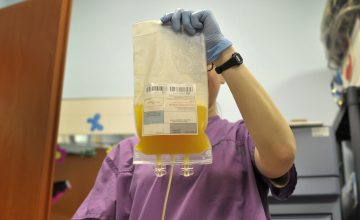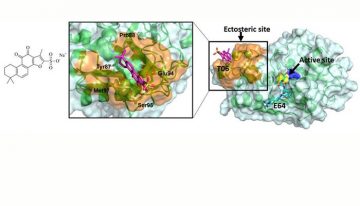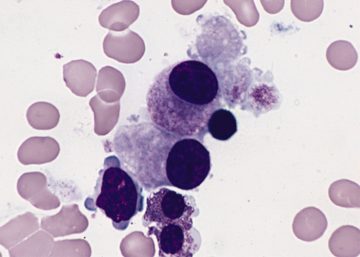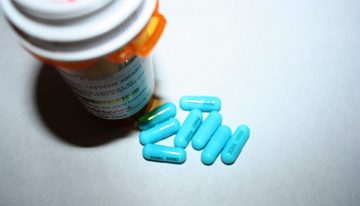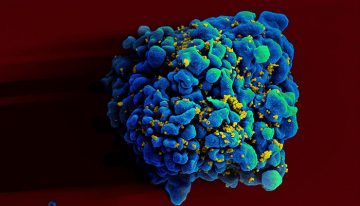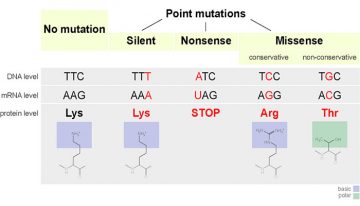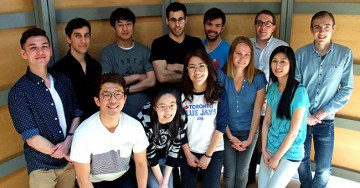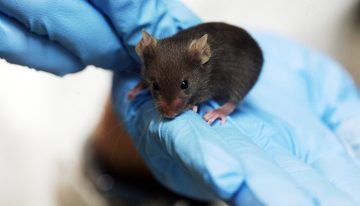Research
Can Temperature Modulation be the Answer to Extending Platelet Shelf Life?
December 14, 2017
The most common cause of having to discard units of platelets is the short storage life of platelet concentrates. Researchers have proposed an alternative storage condition for platelets in the hopes of extending platelet shelf life.
Bromme Lab Has Found a Potential Osteoporosis Treatment in Compound Derived from Traditional Chinese Medicine
November 23, 2017
Researchers in the Bromme lab demonstrated the anti bone-resorptive activity of a compound found in traditional Chinese medicine. This may be promising for the treatment of bone deteriorating conditions.
Iron Chelation Therapy – A Clinical Front in the Treatment of MDS Patients?
November 2, 2017
CBR investigator and staff hematologist, Dr. Heather Leitch (St. Paul’s Hospital), and co-workers analyzed the Canadian Myelodysplastic Syndrome (MDS) Registry to evaluate whether there is superior survival in MDS patients receiving iron chelation therapy. Find out about their conclusions.
Questioning the Wisdom of the Full Course of Antibiotics
September 21, 2017
Doctors and healthcare professionals have long urged patients to always finish a course of antibiotics to prevent the development of antibiotic resistance, but is this protocol still warranted? Researchers have discovered that over-use of antibiotics can have negative effects.
CBR Researchers Develop a Novel Blood Binding Bandage to Help Control Traumatic Hemorrhage
September 7, 2017
A team of chemists from the Centre for Blood Research at the University of British Columbia have developed a new wound-dressing material engineered to locally enhance the clotting process at hemorrhage sites.
What is the Best Method of Preventing HIV Transmission?
August 24, 2017
Researchers collaborated to study the most salient methods of preventing HIV transmission via contaminated needles, comparing two harm reduction strategies and antiretroviral therapy (ART).
More than an Antibiotic: Unveiling Alternative Therapeutic Potential of Gentamicin
August 17, 2017
A minor component of gentamicin, an antibiotic used to treat bacterial infections, has the ability to suppress nonsense mutations. This may greatly benefit patients living with rare genetic diseases.
Kastrup Lab Uses Simulations to Uncover a Potential New Player in Thrombosis
July 17, 2017
Researchers from the Kastrup Lab at the CBR have provided insight into the mechanism of action for one activator involved in blood clot formation: short‑chain polyphosphate (PolyP).
Bromme Lab Makes an Osteoporosis Mouse Model that is More Similar to Humans
June 29, 2017
All new osteoporosis drugs have failed clinical trials with unexpected severe side effects and no one knew the reason. Now, Bromme Lab at the CBR discovered key differences between mouse and human cathepsin K proteins that can help create more effective mouse models and test for side-effects long before human trials.
Kizhakkedathu Lab Develops Heparin Reversal Treatment Without Usual Side-Effects
May 31, 2017
Published in Blood, Dr. Manu Kalathottukaren showed that the Universal Heparin Reversal Agent (UHRA) developed in Dr. Kizhakkedathu’s Lab is non-toxic and has many advantages over the current standard of treatment.



